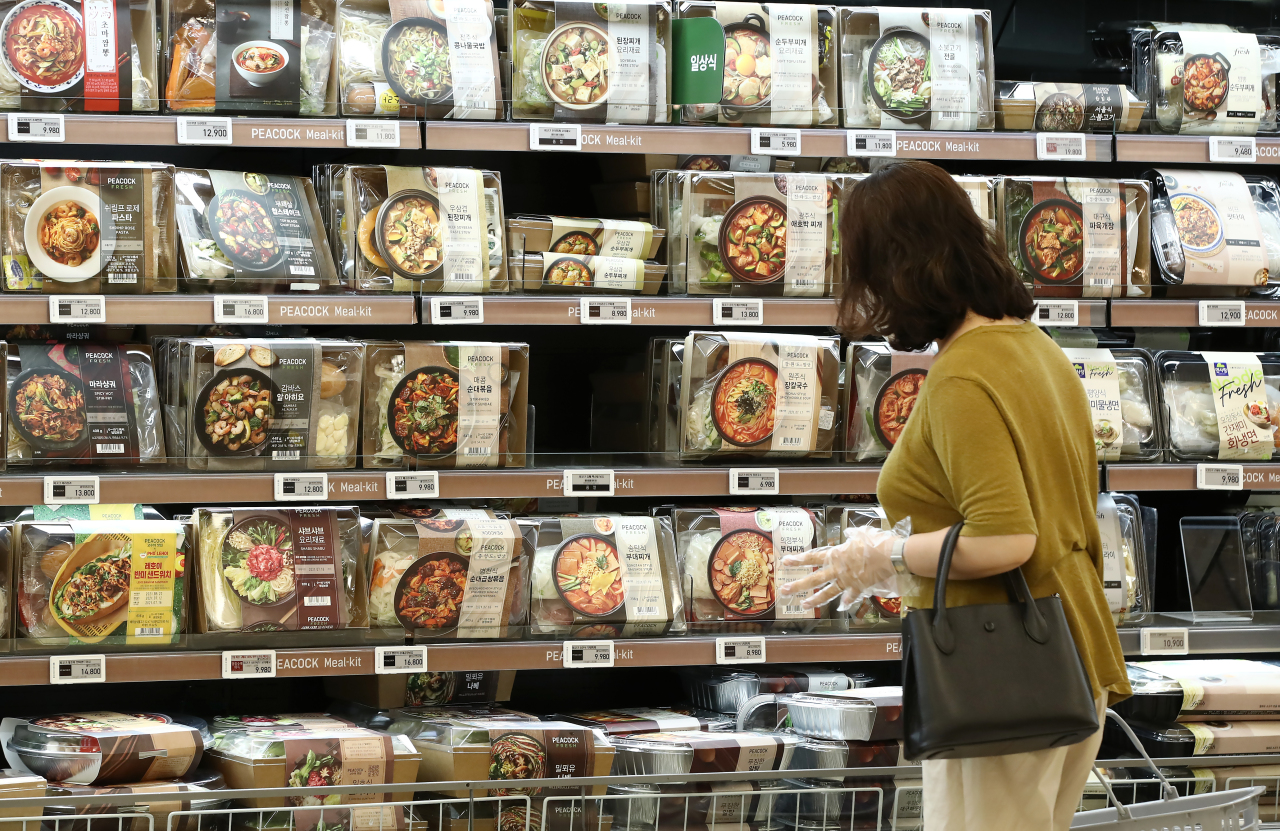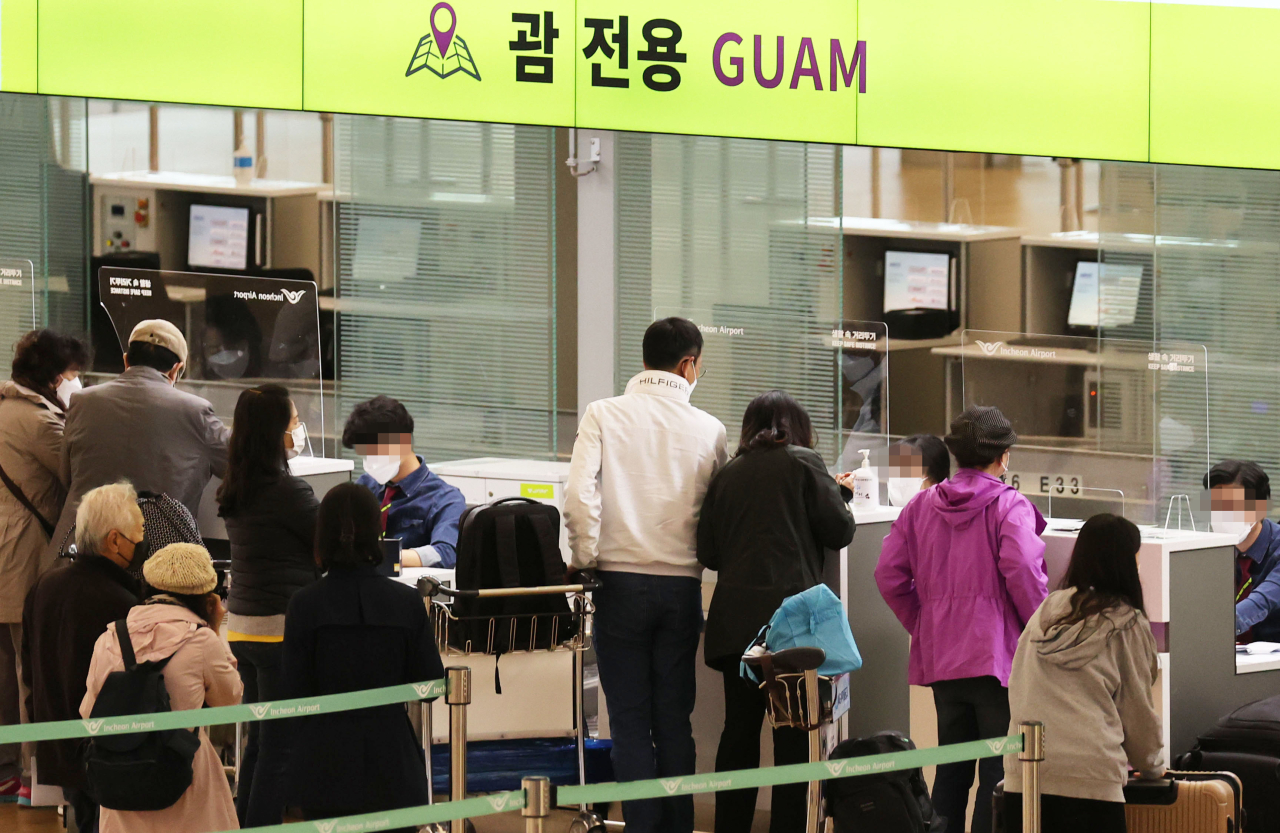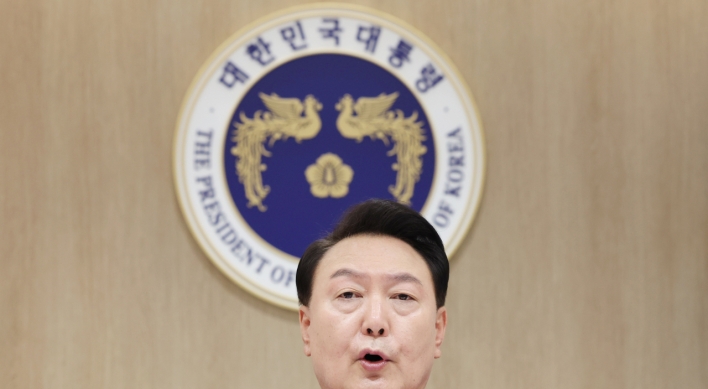[Feature] Is a year-end spending spree on the horizon?
As Korea anticipates ‘living with COVID,’ businesses are counting on pent-up demand
By Kang Jae-eunPublished : Oct. 20, 2021 - 15:40

For a year and a half, South Korea’s tourism, cosmetics and liquor businesses endured the dark days of the COVID-19 pandemic. Finally, hope is on the horizon.
As early as next month, the country shifts to “living with COVID-19” mode. Accordingly, many of the virus containment measures that restricted gatherings and human contact are set to be eased.
“I literally can feel the eagerness of people to have a party and enjoy the things that have been taken away from their lives under the pandemic. I think pent-up demand is real and it will explode, once unleashed,” said Lee Jun-young, a 39-year-old construction engineer in Suwon, Gyeonggi Province.
He said the air tickets and hotel stays now being offered at competitive prices by major e-commerce players were very tempting.
On the e-commerce front, leisure travel is in the spotlight. Early this month, for the first time since the pandemic began, Tmon offered package tour vouchers via live broadcast. It sold more than 100 vouchers within a day, with prices ranging from 800,000 won to 900,000 won ($680-$760).
Sales of plane tickets at online marketplace Gmarket and its affiliate Auction recorded nearly 70 percent year-on-year growth in September, the operator of the two sites said. Most were outbound plane tickets for departures in December and January.
The government is also set to resume its spending stimulus program, and will distribute discount coupons to promote a recovery in private consumption.
The coupons, suspended in mid-August due to a resurgence of coronavirus cases, can be used at movie theaters, sports facilities, hotels and other establishments.
As early as next month, the country shifts to “living with COVID-19” mode. Accordingly, many of the virus containment measures that restricted gatherings and human contact are set to be eased.
“I literally can feel the eagerness of people to have a party and enjoy the things that have been taken away from their lives under the pandemic. I think pent-up demand is real and it will explode, once unleashed,” said Lee Jun-young, a 39-year-old construction engineer in Suwon, Gyeonggi Province.
He said the air tickets and hotel stays now being offered at competitive prices by major e-commerce players were very tempting.
On the e-commerce front, leisure travel is in the spotlight. Early this month, for the first time since the pandemic began, Tmon offered package tour vouchers via live broadcast. It sold more than 100 vouchers within a day, with prices ranging from 800,000 won to 900,000 won ($680-$760).
Sales of plane tickets at online marketplace Gmarket and its affiliate Auction recorded nearly 70 percent year-on-year growth in September, the operator of the two sites said. Most were outbound plane tickets for departures in December and January.
The government is also set to resume its spending stimulus program, and will distribute discount coupons to promote a recovery in private consumption.
The coupons, suspended in mid-August due to a resurgence of coronavirus cases, can be used at movie theaters, sports facilities, hotels and other establishments.

Department stores expect a recovery in cosmetics and clothing sales. These were among the areas hardest hit by the pandemic, as consumers mostly stayed home and had to cover their faces when outside.
“At the moment, we are not yet considering any promotional events at our physical stores since the top priority is consumer safety and following the government’s antivirus guidelines. But we definitely expect a boost in sales once restrictions ease,” said Hyundai Department Store spokesperson Hong Jin-su.
Liquor companies are stocking up on inventory, anticipating that alcoholic beverage consumption will grow once restrictions on private gatherings and restaurant businesses are eased. More people will eat and drink late, they say, when hours of operation at bars and restaurants are extended past the current limit of 10 p.m.
“Liquor sales will definitely increase, once it becomes easier for people to dine out. We are closely monitoring our inventory and constantly checking with restaurants to prepare for the ‘living with COVID’ phase,” said a spokesperson for Hite Jinro, a Korean soju and beer maker.
The local duty-free industry has suffered greatly as the pandemic decimated global travel.
Now, upon growing signs of recovery in the air travel and tourism industries and with the expansion of “travel bubble” programs, local duty-free operators are slowly reopening their stores.
Lotte Duty Free, Korea’s largest duty-free retailer, said it recently opened a store in Japan’s Kansai International Airport on expectations of a cross-border travel boom in the coming months. It has also reopened stores located outside airports in Australia and Vietnam, targeting international travelers.
Despite the positive signals, travel bubble programs are in their early stages and many people remain hesitant to embark on international trips. It will take time for the duty-free industry to recover to where it was before, industry insiders say.
“Both inbound and outbound travelers need to freely move in and out of Korea for the duty-free industry to revive,” said an industry official.
“The duty-free industry will probably be the last to recover even if (the government) switches to a ‘living with COVID-19” phase. We are just hoping things get better as fast as possible.”
“At the moment, we are not yet considering any promotional events at our physical stores since the top priority is consumer safety and following the government’s antivirus guidelines. But we definitely expect a boost in sales once restrictions ease,” said Hyundai Department Store spokesperson Hong Jin-su.
Liquor companies are stocking up on inventory, anticipating that alcoholic beverage consumption will grow once restrictions on private gatherings and restaurant businesses are eased. More people will eat and drink late, they say, when hours of operation at bars and restaurants are extended past the current limit of 10 p.m.
“Liquor sales will definitely increase, once it becomes easier for people to dine out. We are closely monitoring our inventory and constantly checking with restaurants to prepare for the ‘living with COVID’ phase,” said a spokesperson for Hite Jinro, a Korean soju and beer maker.
The local duty-free industry has suffered greatly as the pandemic decimated global travel.
Now, upon growing signs of recovery in the air travel and tourism industries and with the expansion of “travel bubble” programs, local duty-free operators are slowly reopening their stores.
Lotte Duty Free, Korea’s largest duty-free retailer, said it recently opened a store in Japan’s Kansai International Airport on expectations of a cross-border travel boom in the coming months. It has also reopened stores located outside airports in Australia and Vietnam, targeting international travelers.
Despite the positive signals, travel bubble programs are in their early stages and many people remain hesitant to embark on international trips. It will take time for the duty-free industry to recover to where it was before, industry insiders say.
“Both inbound and outbound travelers need to freely move in and out of Korea for the duty-free industry to revive,” said an industry official.
“The duty-free industry will probably be the last to recover even if (the government) switches to a ‘living with COVID-19” phase. We are just hoping things get better as fast as possible.”












![[KH Explains] How should Korea adjust its trade defenses against Chinese EVs?](http://res.heraldm.com/phpwas/restmb_idxmake.php?idx=644&simg=/content/image/2024/04/15/20240415050562_0.jpg&u=20240415144419)






